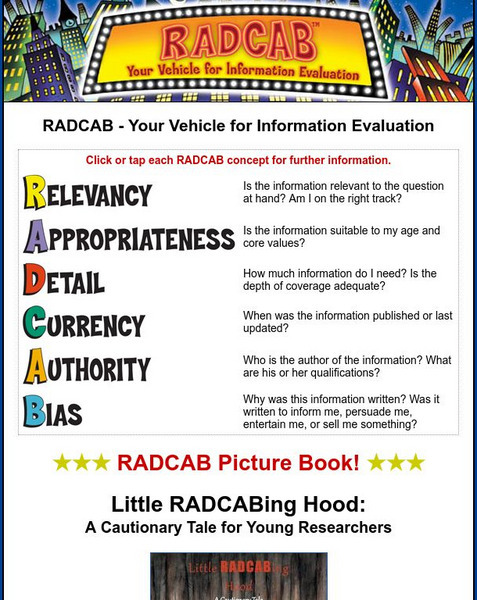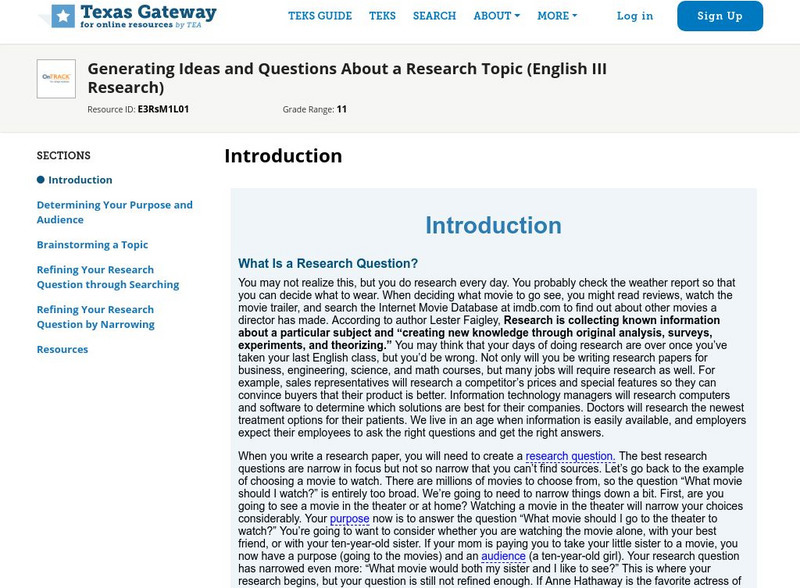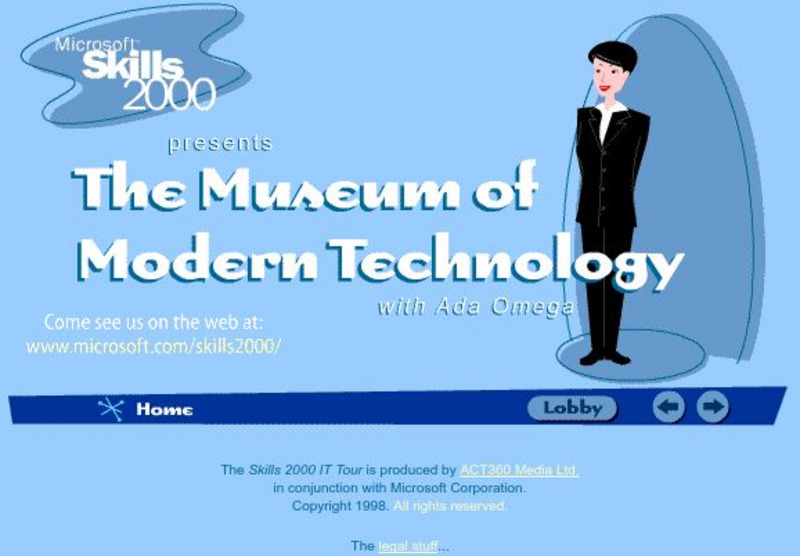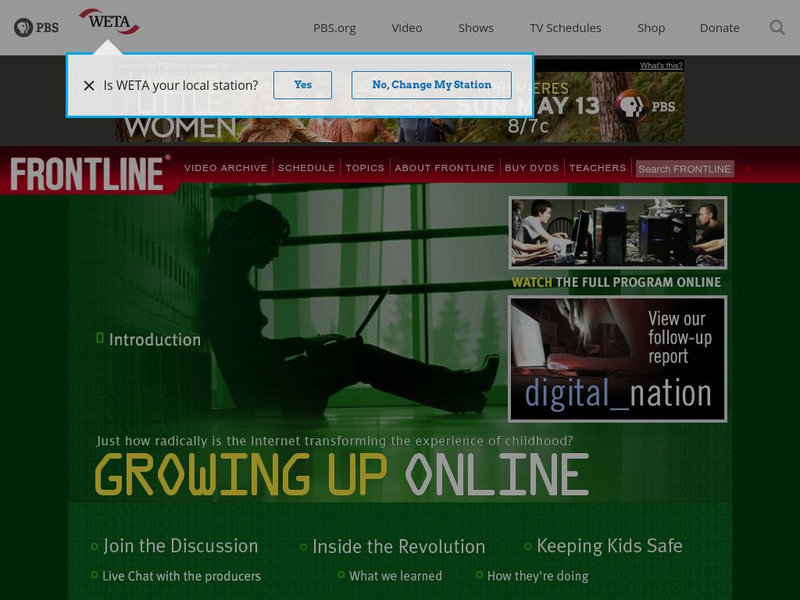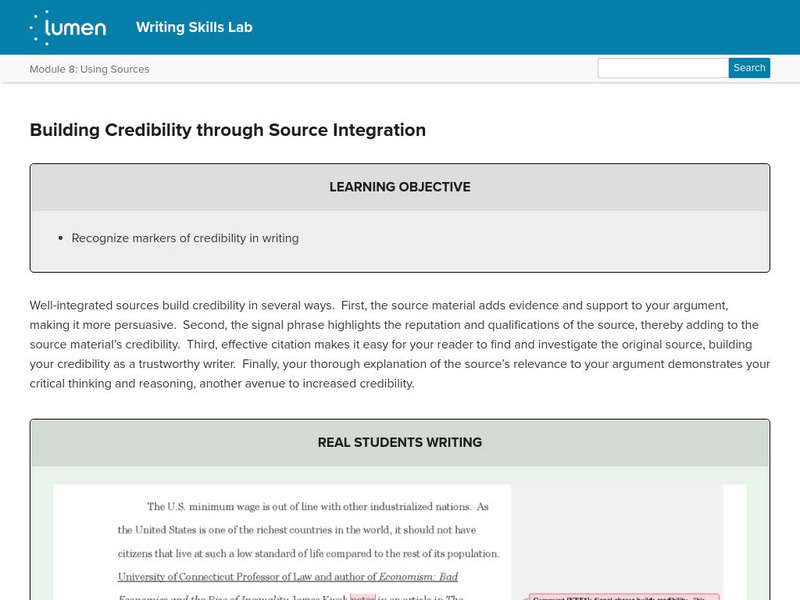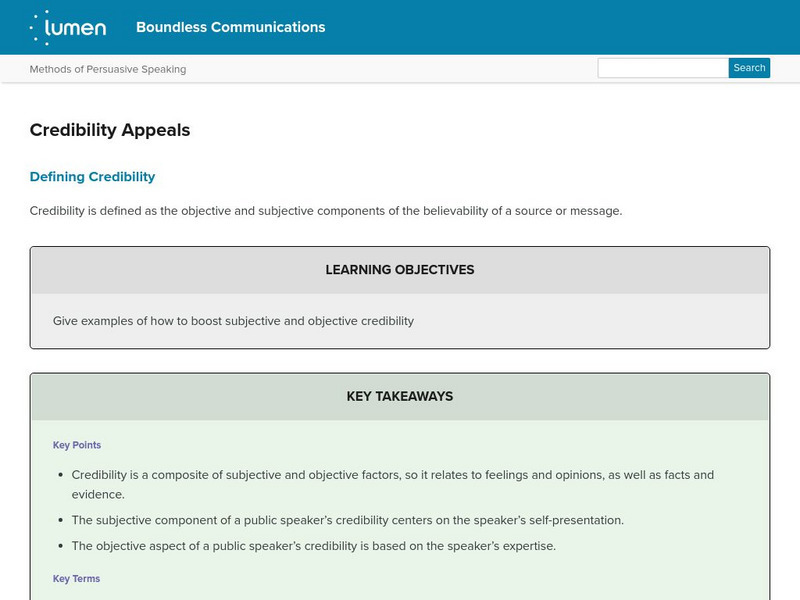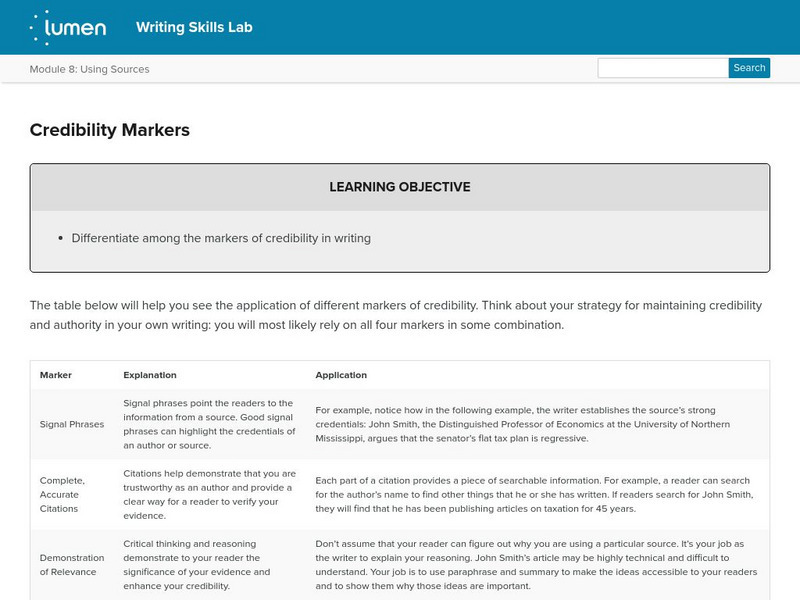Other
The Digital Scoop: Using Skitch in Kindergarten
In this article, a teacher explains how she taught kindergarten students to take photographs. They were then shown how to open an iPad app called Skitch and add words to accompany their pictures. This was followed by a Math activity...
Other
Radcab: Your Vehicle for Information Evaluation
How do you know you are using a trustworthy source when writing a research paper? Use this acronym for easy questions to ask yourself to make sure you have a reliable source. Click on each one for further details.
Common Sense Media
Common Sense Media: Best Tech Creation Tools
Check out this list of terrific tools for tech creation that offer a wide variety of engaging end products kids can create, from stories to animations to music to games.
PBS
Pbs Learning Media: Main Idea and Details Cloud
Students practice distinguishing between relevant and irrelevant ideas by identifying relevant details in a video segment about a wild horse roundup. Students watch the video, read the transcript, and identify details they believe are...
Online Writing Lab at Purdue University
Purdue University Owl: Avoiding Plagiarism
Plagiarism is a serious offense in many educational settings. Plagiarism and copyright laws are reviewed here. Activities to avoid plagiarism are also provided through links. W.9-10.8 Sources, W.11-12.8 Sources/Integrate/Cite;...
Online Writing Lab at Purdue University
Purdue University Owl: Mla Formatting and Style Guide
Extensive examination of the Modern Language Association (MLA) format of writing papers, making reference to the works of others, citations, and notes. W.9-10.8 Sources, L.9-10.3a Standard Format; CCSS.ELA-Literacy.WHST.6-8.8 Gather...
Online Writing Lab at Purdue University
Purdue University Owl: Using American Psychological Association (Apa) Format
Extensive information on how to use the American Psychological Association (APA) format for citations. Information is provided on general format, referring to other works, reference list, notes, and examples in the APA format. W.9-10.8...
Texas Education Agency
Texas Gateway: Generating Ideas and Questions About a Research Topic
This lesson focuses on creating a research question including determining the purpose and audience, brainstorming a topic, researching the question for information, and refining and narrowing the question. W.9-10.7 Research....
Lumen Learning
Lumen: Building Credibility Through Source Integration
Well-integrated sources build credibility in several ways: Source material adds evidence and support to your argument, the signal phrase highlights the reputation and qualifications of the source, and effective citation makes it easy for...
Other
Babson College: Evaluating Quality on the Net
Internet research is a fine writing tool, but can you trust the information you find? This presentation by Hope N. Tillman, Director of Libraries at Babson College, gives advice on assessing the quality and credibility of information...
ACT360 Media
Act Den: The Museum of Modern Technology
Informative, fun, and humorous tutorial that uses cartoon characters to provide an introduction to information technology. The tutorial covers operating systems/desktops, email, the world wide web, and networks.
PBS
Pbs Frontline: Growing Up Online
Information and analysis on the practices and habits of children and teens who live their lives online. Focus is on teen culture in the digital age and on how online media have intensified fears of the dangerous dimensions of adolescence.
REMC Association of Michigan
Remc Association of Michigan: 21 Things4 Students: 17. Creative Communications
Communication involves listening and speaking as well as reading and writing clearly and creatively, and technology provides opportunities for expressing yourself digitally. In these Quests, students learn about different software...
New Zealand Ministry of Education
Nz Ministry of Education: Logging Up Reading Mileage
Young scholars will select and enjoy their own range of contemporary and historical texts, display a knowledge of different genre and their particular content, and identify literary aspects of chosen texts for sustained silent reading....
ArtsNow
Arts Now Learning: Magic Rocks [Pdf]
In this lesson, students work in groups with each acting as a predator, prey, or family member in a particular habitat. They present their habitat performance to the class and students identify the habitat and animal relationships. Then,...
University of Saskatchewan (Canada)
Making Art Visible With Computers Harold Cohen and Aaron
An informative site by Val Wiebe on Harold Cohen and his work with a computer (AARON) that generates art on its own following program written by Cohen.
Texas Education Agency
Texas Gateway: Contrast Media's Message With Traditional Text English I Reading
Compare and contrast how visual and non-visual texts communicate information.
Science Education Resource Center at Carleton College
Serc: Exploring Sugarloaf Cove: Geology of Lake Superior's North Shore
Students gather information about a restored wetland, pebble beach, and lava flows at Sugarloaf Cove on Minnesota's North Shore. Students in the field will make observations using field notebooks and digital media equipment while...
Sophia Learning
Sophia: How to Choose Credible Sources
This tutorial focuses on choosing credible sources for a research project. It offers two versions of a slideshow: a non-audio slideshow and an audio slideshow which explains the information as it is shown. They each define terms, offer...
Lumen Learning
Lumen: Using Sources: Building Credibility Through Source Integration
This lesson focuses on building credibility by properly integrating source materials. It discusses three ways of improving credibility through integration, provides an example, and a practice exercise. SL.9-10.2 eval & integrate...
George Mason University
Gmu: Virginia Montecino: Criteria to Evaluate the Credibility of Www Resources
An easy-to-follow guide to assist in determining whether online resources are reliable and true. Find questions to ask while reviewing sources. CCSS.ELA-Literacy.CCRA.W.8 and CCSS.ELA-Literacy.CCRA.R.9
Lumen Learning
Lumen: Boundless Communications: Credibility Appeals
In this Boundless Communication, students will learn about the importance of credibility in public speaking. There are four sections: defining credibility, types and elements of credibility, building credibility, and ethical usage....
Lumen Learning
Lumen: Boundless Communications: Credibility Appeals
This lesson plan focuses on using credible appeals in persuasive speeches including defining subjective and objective credibility, the types and elements of credibility, and the ethical use of credibility appeals. CCSS.ELA-Literacy.CCRA.W.8
Lumen Learning
Lumen: Using Sources: Credibility Markers
This lesson focuses on strategies for maintaining credibility and authority in your writing. It also provides a table of different types of credibility markers, an explanation, and the application for each. SL.9-10.2 eval & integrate...



